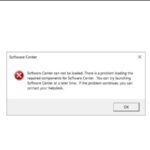Sales Management Software: Your Ultimate Guide to Boosting Sales and Streamlining Operations
In today’s competitive business landscape, optimizing sales processes is paramount to achieving success. Enter sales management software, a game-changer that empowers businesses to streamline operations, boost sales productivity, and ultimately drive revenue growth. This comprehensive guide delves into the world of sales management software, exploring its key features, benefits, and how to choose the right solution for your specific needs.
What is Sales Management Software?
Sales management software, also known as CRM (Customer Relationship Management) software, is a suite of tools designed to manage and optimize the entire sales lifecycle. From lead generation and qualification to opportunity tracking, pipeline management, and sales forecasting, these platforms provide a centralized hub for all sales-related activities. By automating tasks, centralizing data, and providing insightful analytics, sales management software empowers sales teams to work smarter, not harder.
Key Features of Sales Management Software
- Lead Management: Capture, qualify, and nurture leads effectively through forms, landing pages, and lead scoring systems.
- Opportunity Tracking: Monitor the progress of sales opportunities, track key metrics, and identify potential roadblocks.
- Pipeline Management: Visualize the sales pipeline, prioritize deals, and forecast future revenue with advanced pipeline analytics.
- Sales Forecasting: Generate accurate sales forecasts based on historical data and current trends, enabling proactive decision-making.
- Customer Relationship Management (CRM): Store and manage customer data, including contact information, purchase history, and communication logs, fostering personalized interactions.
- Sales Automation: Automate repetitive tasks such as email campaigns, appointment scheduling, and reporting, freeing up sales reps to focus on revenue-generating activities.
- Sales Analytics and Reporting: Gain valuable insights into sales performance, identify areas for improvement, and track key metrics through customizable dashboards and reports.
- Team Collaboration: Facilitate seamless communication and collaboration among sales teams, ensuring alignment and shared goals.
- Mobile Accessibility: Access sales data and manage deals on the go with mobile-optimized platforms, enhancing sales team productivity.
- Integrations: Integrate with other business applications such as email marketing platforms, accounting software, and marketing automation tools for seamless data flow and enhanced workflow.
Benefits of Implementing Sales Management Software
- Increased Sales Productivity: Automation streamlines tasks, freeing up sales reps to focus on building relationships and closing deals.
- Improved Lead Management: Capture, qualify, and nurture leads effectively, maximizing conversion rates.
- Enhanced Customer Relationships: Centralized customer data enables personalized interactions and fosters stronger relationships.
- Data-Driven Insights: Sales analytics provide valuable insights into sales performance, driving informed decision-making.
- Improved Sales Forecasting: Accurate forecasts enable better resource allocation and strategic planning.
- Streamlined Sales Processes: Automation and workflow optimization reduce manual tasks, improving efficiency and reducing errors.
- Increased Revenue Growth: By optimizing sales operations, businesses can drive higher conversion rates and achieve greater revenue growth.
- Better Team Collaboration: Shared access to data and communication tools foster teamwork and alignment.
Factors to Consider When Choosing Sales Management Software
- Business Size and Industry: Consider the specific needs of your business, including the size of your sales team and the industry you operate in.
- Budget: Sales management software comes in various price ranges. Choose a solution that aligns with your budget and provides the necessary features.
- Features: Evaluate the features offered by different platforms and prioritize those that address your specific business needs.
- Ease of Use: Opt for software with a user-friendly interface that is easy for your sales team to learn and navigate.
- Integrations: Ensure the platform integrates with other business applications you use, such as email marketing and accounting software.
- Customer Support: Choose a vendor that offers reliable customer support and documentation to assist with implementation and ongoing use.
- Scalability: Select a platform that can grow with your business as your sales team expands and your needs evolve.
- Security: Prioritize security features to ensure the confidentiality and integrity of your customer data.
Top Sales Management Software Solutions
- Salesforce: A leading CRM platform known for its comprehensive features, scalability, and robust integrations.
- HubSpot: A popular all-in-one marketing and sales platform with a focus on inbound marketing and lead nurturing.
- Microsoft Dynamics 365: A comprehensive business application suite that includes sales management capabilities, integrating with other Microsoft products.
- Zoho CRM: A versatile and affordable CRM platform that caters to businesses of all sizes, offering a wide range of features.
- Pipedrive: A user-friendly and visually intuitive sales pipeline management platform that simplifies sales processes.
- Insightly: A cloud-based CRM that provides a comprehensive suite of tools for managing sales, projects, and relationships.
- Freshsales: A modern sales CRM with a focus on automation, lead qualification, and AI-powered insights.
- Close.io: A sales CRM that emphasizes efficiency and productivity, featuring automated task management and communication tools.
- Nimble: A social CRM that integrates with social media platforms, enabling sales teams to build relationships and track interactions.
- SugarCRM: A flexible and customizable CRM platform that caters to businesses with complex sales processes.
Implementation and Success Strategies
Once you choose a sales management software solution, successful implementation requires careful planning and execution. Here are some key strategies to maximize the benefits:
- Define Clear Goals and Objectives: Identify the specific goals you want to achieve with the software, such as increasing sales productivity, improving lead conversion rates, or streamlining sales processes.
- Proper Training and Onboarding: Ensure your sales team receives comprehensive training on the software’s features and functionalities.
- Data Migration and Clean-up: Migrate existing customer and sales data into the new system accurately and efficiently.
- Customize Workflows: Tailor the software’s workflows and automation rules to fit your specific sales processes.
- Monitor and Analyze Performance: Regularly track key metrics and analyze performance data to identify areas for improvement.
- Continuous Optimization: Continuously refine your sales processes and adjust the software configuration to maximize its effectiveness.
Conclusion: Embracing the Power of Sales Management Software
Sales management software offers a powerful toolkit to transform sales operations and drive revenue growth. By streamlining processes, centralizing data, and providing insightful analytics, these platforms empower businesses to achieve sales success. When selecting a solution, consider your business needs, budget, and the features offered. With careful implementation and continuous optimization, sales management software can be a catalyst for growth and prosperity.







